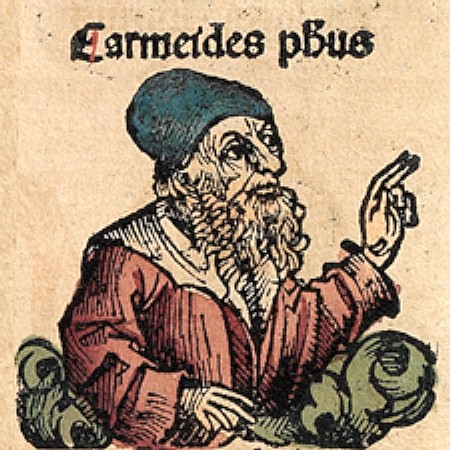Diocles of Magnesia
On the Lives of Philosophers

「c. 2nd-1st c. BCE」Diocles, “Epicurus,” On the Lives of the Philosphers,” non-extant source quoted in The Lives and Opinions of Eminent Philosophers by Diogenes Laterius 「Google Books」 (London, 1853).
And Diocles, in the third book of his Excursion, says that they all lived in the most simple and economical manner; “They were content,” says he, “with a small cup of light wine, and all the rest of their drink was water.” He also tells us that Epicurus would not allow his followers to throw their property into a common stock, as Pythagoras did, who said that the possessions of friends were held in common. For he said that such a doctrine as that was suited rather for those who distrusted one another; and that those who distrusted one another were not friends. But he himself in his letters, says that he is content with water and plain bread, and adds, “Send me some Cytherean cheese, that if I wish to have a feast, I may have the means.” This was the real character of the man who laid down the doctrine that pleasure was the chief good.
Biography-Commentary-Reference-Review
[Leonhard Schmitz, “Diocles of Magnesia,” Dictionary of Greek and Roman Biography and Mythology 「Google Books」, Sir William Smith, ed. (1844; London 1861).



